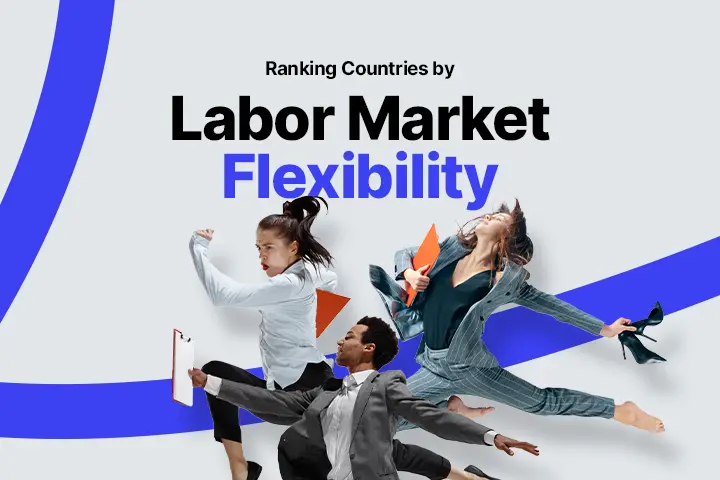In the UAE’s rapidly evolving workplace, where professionals from over 200 nationalities collaborate, building a culture of recognition is no longer just a nice-to-have. It’s essential for driving productivity, loyalty, and performance. In fact, a recent study found that 84% of employees in the UAE and Saudi Arabia say they feel proud of their company, with recognition being a critical driver.
Before diving into how you can build this culture in your organisation, let’s answer the most important question:
What Is a Culture of Recognition?
A culture of recognition means every employee feels seen, valued, and understood. It doesn’t only mean handing out awards, it means embedding appreciation in everyday actions, behaviours, and systems.
Examples of recognition initiatives include:
- Noticing outstanding contributions
- Offering monetary rewards or bonuses
- Celebrating small wins
- Planning engagement activities
- Providing meaningful incentives
When aligned with your company’s values, recognition becomes part of the DNA, rather than a sporadic event.
Also Read: Cultivating a Winning Culture
1. Communicate to Build Trust
Recognition begins with clear and consistent communication. Employees must understand what success looks like, beyond just the KPIs. They also need to feel safe to raise concerns and share ideas.
In the UAE, where teams are culturally diverse, transparent communication is vital. Employees may come from different cultural backgrounds with different communication styles, gestures or values. Being intentional about communication helps build inclusivity.
Suggested: Top UAE HR Trends
Action Steps:
- Regular check-ins that go beyond status updates
- Ask for feedback on recognition practices
- Use multiple languages or simple English where needed
2. Develop Recognition Programmes
Recognition programmes give structure to appreciation. Especially in a geographically and culturally diverse workforce like the UAE’s, such programmes help each employee understand how their contribution matters.
Here are some programme ideas:
- Employee of the Month/Quarter:
Acknowledging top performance
- Peer-to-Peer Recognition:
Employees from different backgrounds recognise one another
- Longevity Awards:
Celebrating years of service and dedication
Suggested: Top Job Posting Platforms for Recruiters in the UAE
- Team Achievement Celebrations:
Recognising collective wins
- Wellness Recognition:
Highlighting employees who prioritise work-life balance
- Innovation Awards:
Rewarding creative ideas and diverse thinking
For each programme, align it to your core values so recognition feels genuine, not perfunctory.
Also Read: How to Maintain Culture in a Remote Work Setting?
3. Create Feedback Checkpoints
Recognition is stronger when paired with meaningful feedback. Regular checkpoints help employees see both where they excel and where they can grow.
In the UAE workplace context, feedback fosters collaboration across cultures, helps overcome misunderstandings, and increases productivity.
Implementation Tips:
- Set quarterly feedback sessions focused on strengths + improvement
- Encourage managers to ask: “What recognition do you value?”
- Use anonymous tools if employees feel culturally constrained
4. Foster a Sense of Ownership
When employees feel ownership over their work, recognition becomes natural. They begin to see the impact of their contributions, and they start recognising their peers in return.
In UAE workplaces with diverse teams, fostering ownership means giving autonomy, clarifying purpose, and supporting cross-cultural teams to solve problems together.
Outcome: A cycle of ownership → recognition → collaboration → better results.
Suggested: Culture Fit Vs. Culture Add – Choosing the Right Approach
5. Employee Engagement Activities
Recognition isn’t just verbal or financial, it’s also cultural and experiential. Leverage the UAE’s multicultural composition by designing engagement activities that invite participation and celebration.
For example:
- Host cultural days where employees from different nationalities share traditions
- Use multilingual recognition posts (e.g., Arabic + English)
- Tie recognition moments to cultural festivals relevant to your workforce
These efforts build belonging and make recognition feel personal and inclusive.
6. Preserve Emirati Values and Traditions
With growing Emiratisation and the UAE’s focus on national identity, employers should ensure recognition programmes reflect Emirati values and heritage. That includes celebrating local customs, giving Emirati employees visibility, and acknowledging contributions of the national workforce.
When you highlight Emirati achievements alongside international ones, you create a balanced recognition culture that is inclusive and aligned with local priorities.
Suggested: How to Attract and Retain Emirati Talent
7. Stay Consistent
Recognition programmes must be consistent to be credible. Occasional gestures are nice but won’t build a culture. Commitment over time converts recognition into habit.
In the UAE’s fast-paced economy, consistency signals reliability and builds long-term employee trust. Make recognition a core value, integrate it into workflows, and keep it visible.
Work Culture & the Future of the UAE
By establishing a robust culture of recognition, UAE companies position themselves for success in a competitive global talent market. When professionals feel seen, valued and appreciated, they’re more likely to stay, innovate and contribute meaningfully.
The impact of recognition extends beyond morale: it shapes your workplace into a community of shared purpose and high performance. In this multicultural, dynamic setting, recognition becomes the bridge that connects diverse backgrounds and elevates organisational culture.
{{tool-uae="/sandbox/home-v3"}}




